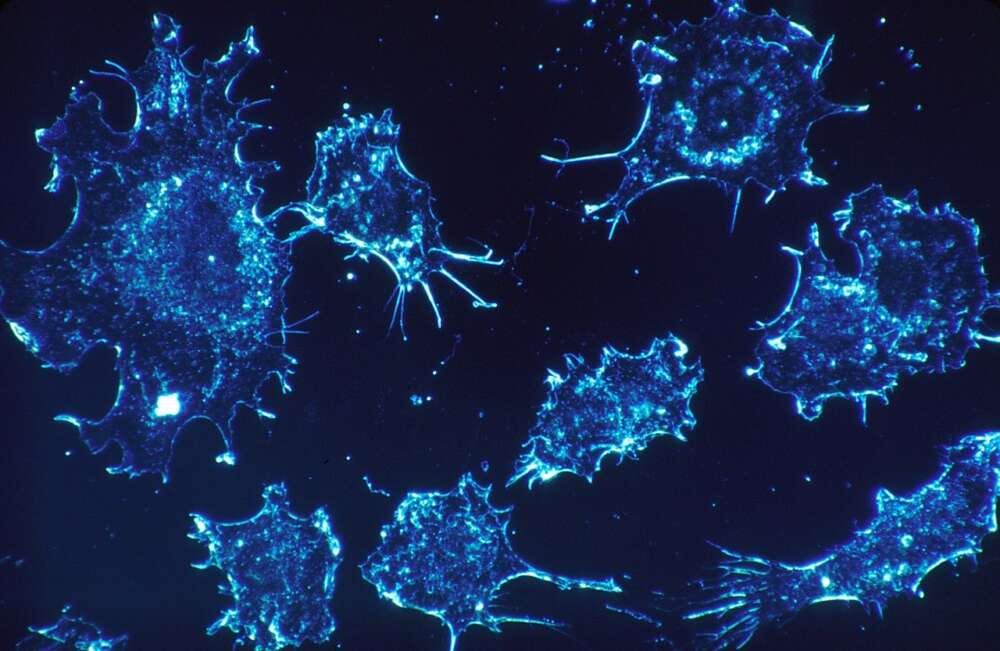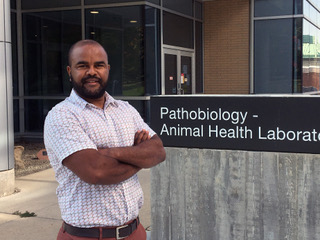
University of Guelph scientists have harnessed tumour-killing viruses that may one day help treat devastating forms of breast, brain and pancreatic cancer.
A team of researchers led by Ontario Veterinary College (OVC) professor Sam Workenhe has shown for the first time that a one-two punch of cancer-killing viruses and chemotherapy can help trigger tumour inflammation, stimulating the body’s immune system to control tumour growth.
Published recently in Nature Communications Biology, the study uses mice specially bred to develop an aggressive form of breast cancer. The researchers found that treated mice lived about two months longer than untreated ones.
Workenhe, Department of Pathobiology, said the study may ultimately help doctors enlist patients’ immune systems to fight cancers with especially poor treatment outcomes from conventional surgery, chemotherapy or radiation.
“The implications of these findings for human cancer therapy are huge,” he said.
He conducted the study with researchers at McMaster University and the University of Washington.
Immunotherapy, or use of the immune system, is already a tool for fighting many types of cancer. But some tumours can prevent inflammation that normally signals the immune system to act, preventing the body from recognizing the tumour and making immunotherapy ineffective.

By prompting a specific kind of cell death in the tumour, the team kick-started inflammation, stimulating the immune system to target the cancer cells.
“We wake up the immune system,” Workenhe said.
“Our study proves that aggressive tumours without immune cells can be made to render an immune response. Understanding how to design treatments that can potentially activate the immune system against cancer can revolutionize the current standards of care.”
Workenhe, a veterinarian and virologist, is now studying the mechanism of immune response and inflammatory cell death in tumours.
Along with veterinary oncologists in the Institute of Comparative Cancer Investigation at OVC, he hopes to use his research findings in clinical trials with companion animals and human patients.
“A lot of people are excited about engineering viruses to inflame the tumour and improve cancer treatment.”
Workenhe received funding from the Ontario Institute for Cancer Research – Joseph and Wolf Lebovic Cancer Genomics and Immunity Fellowship Program.
Contact:
Prof. Sam Workenhe
sworkenh@uoguelph.ca